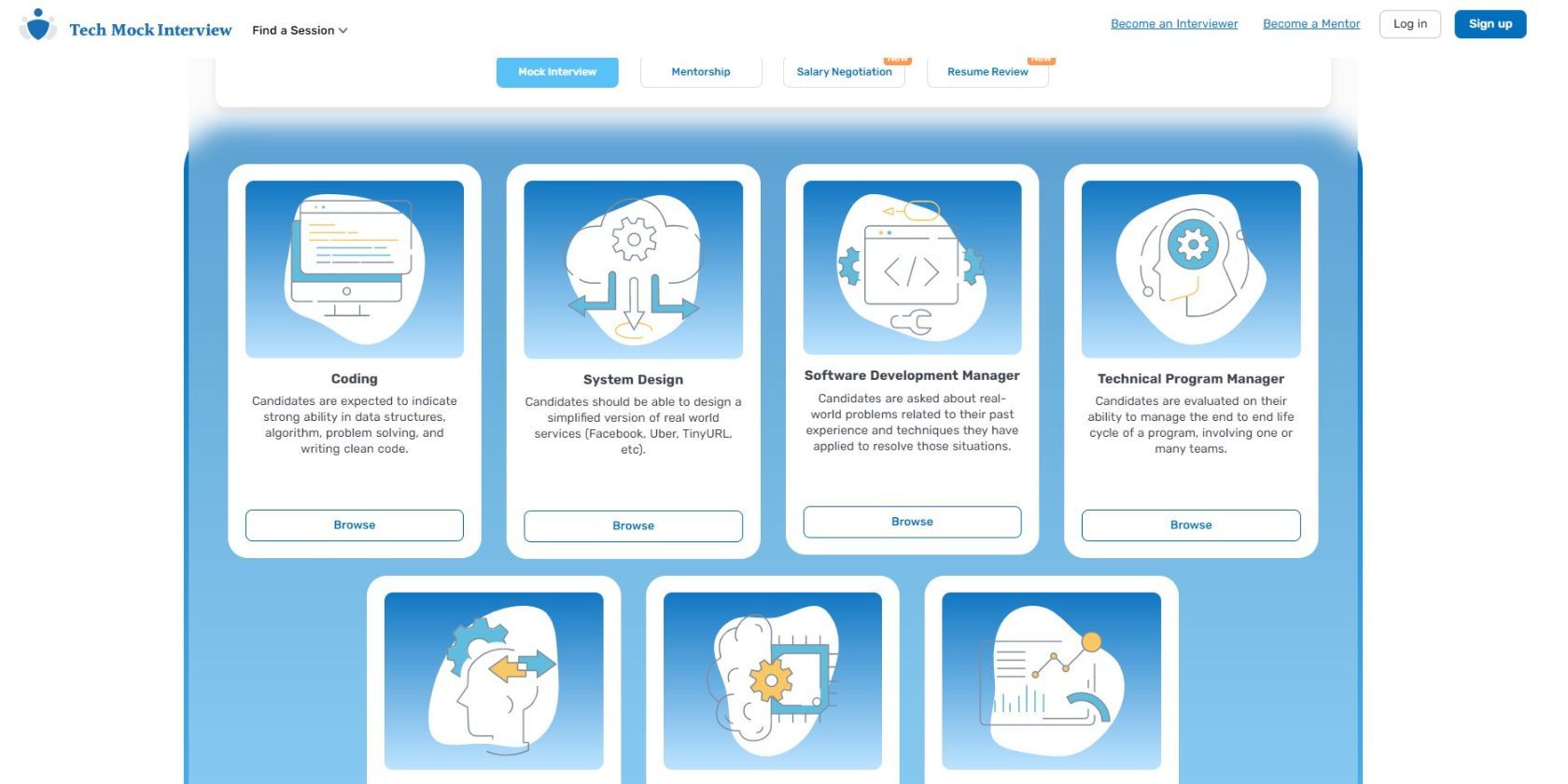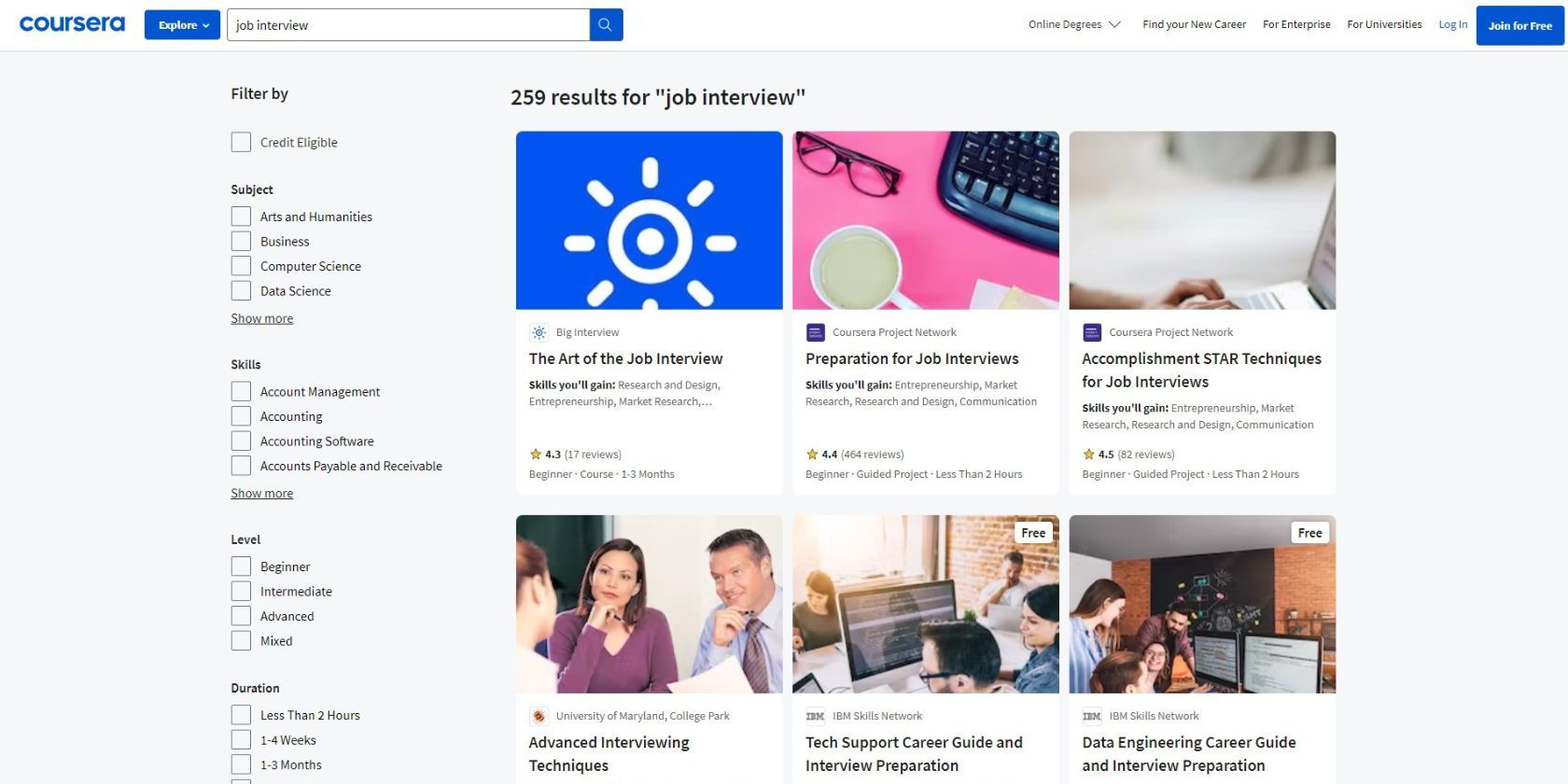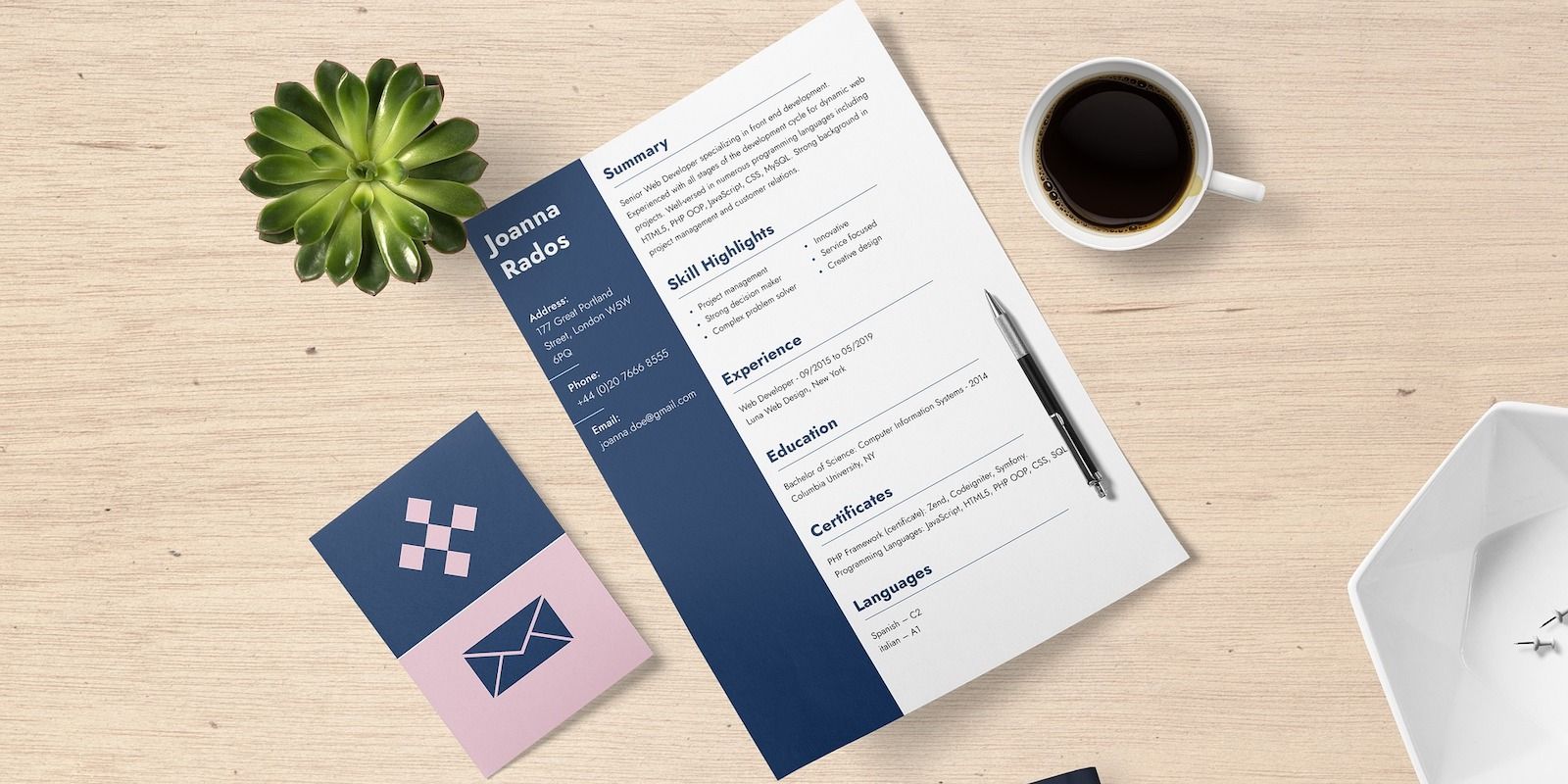Job interviewing is an often ignored skill for those who are currently employed. However, it's also important to practice, helping you prepare for unexpected situations like layoffs and shutdowns. Here's how you can keep your interviewing skills sharp even while working.
1. Practice and Get Feedback
A study on All Theses by Clemson University shows that increasing practice levels and counselor feedback increases interview ratings and lessens interview anxiety. You can listen to all the recruiters and career experts. However, without solid skills honed through a system of practice and assessment, you won't have the confidence to go through an interview.
There are a lot of mock interview tools online, but not all of them include feedback from an outside source. To successfully practice for a job interview, choose a site like Tech Mock Interview. The platform helps you book a mock technical interview, meet professional mentors and interviewers, and receive feedback about your performance.
2. Interview for Jobs
You can still go through an actual job interview even if you already have the best job in the world. Aside from helping you practice, interviewing with another company enables you to keep your options open, build your network, explore a different role or field, and discover if other employers can offer better salaries or benefits.
However, remember that applying for jobs and attending interviews takes time. Be upfront with employers and tell them that you're currently employed. Some may be willing to work around your schedule when they learn about your employment status.
Also, avoid telling even your closest colleagues that you have a job interview. This information might accidentally slip out, and other employees might think you're ready to jump ship and question your loyalty. Use the best calendar apps for time management, and schedule your job interview on your time off when you don't have deadlines or important meetings.
3. Take an Online Course
E-learning sites today offer free and paid courses on almost any topic, including job interviewing. Platforms such as LinkedIn Learning Coursera have multiple topics covering general job interviewing techniques and interviewing for specific roles. You can learn the art of job interviewing from consultants, CEOs, academics, and other industry experts in a self-paced online learning environment.
4. Follow Credible Career Coaches
Career coaches can help you improve your interview skills and get help with common mistakes to avoid in a job interview. It's so easy to market yourself as a career coach or guru nowadays, so do your due diligence before listening to so-called experts. Research their track record, read reviews from their mentees, and listen to their advice with a discerning ear.
You can use many online tools to get the most out of expert advice. Aside from reading online feature articles on work and careers, you can also follow Top Voices on LinkedIn. Social media sites like YouTube and Instagram also host valuable content from industry experts.
5. Regularly Update Your Resume and Career Goals
If you haven't updated your resume and career goals for the past year, it's time for a thorough review. Updating your resume and listing your goals helps you identify new skills you gained, professional milestones you achieved, and other areas you want to improve. When you're aware of where you are and what you want to accomplish in your professional life, you'll be able to better prepare for common interview questions and how to answer them.
For instance, one of the common interview questions is "Tell us about yourself." When an employer asks this, they want to know if your skills and interests fit the role you're applying for. Having a good handle on the work experience highlighted in your resume will help you concretely answer this question.
To help you update your resume, you can use the top resume builder sites to create your resume online. These sites allow you to build a resume from scratch or use a template to make your document look professional. Meanwhile, apps like Todoist or Notion give you space to jot down and track your career goals.
6. Write Your Stories
In an insightful article, the Harvard Business Review identifies storytelling as a valuable strategy to appear more credible and authentic in a job hunt. The premise is based on molecular biologist John Medina's bestselling book Brain Rules. While recruiters might think that pure logic drives decision-making, emotions also play a crucial role. And what has the power to drive people's feelings? An engaging narrative.
Writing helps you distill significant accomplishments into bite-sized yet memorable stories. Instead of telling people what you did, show them what you accomplished. Change cookie-cutter descriptions such as "managed a tech support team" to something like "led the transformation of a tech support team with a high volume of customer complaints".
Prepare personal stories illustrating how you handled mistakes, problems, leadership opportunities, and team activities. You can use these snippets to ace your online job interview. When a recruiter asks, "Tell me about a time when you faced a serious challenge at work," you'll know what to answer.
7. List Insightful Questions for Recruiters and Employers
At the end of an interview, interviewers will give you space to ask questions. Not asking anything is a missed opportunity to clarify necessary information such as job expectations, team culture, and professional growth prospects in the company.
To avoid being caught off guard, start reading and compiling thoughtful questions you can find online for your interviewer. You may divide your questions into the following categories:
- Questions on culture (e.g., Is your company people-oriented or task-oriented?)
- Questions on career progression (e.g., What are the opportunities for advancement in this role?)
- Questions about salary and benefits (e.g., Does the company offer health insurance for family members?)
- Questions about the role (e.g., What do you expect from me in the first three months?)
- Questions on the team (e.g., Who will I report directly to?)
- Questions on the company (e.g., What's the company's most important goal right now?)
Think Long-Term and Stay Prepared for a Job Interview
There's nothing wrong with looking forward to enjoying your retirement in your current company. However, sharpening your job interviewing skills while employed is also wise. The idea that there's such a thing as job security is a myth. Tech layoffs, recessions, and pandemics have taught us that. If you think long-term and not only "now," you'll see the value in improving your job interview skills.
Aside from improving in job interviewing, you might also want to learn other skills to future-proof your career. You can start by identifying the skills you need to remain relevant in the job market and choosing an online course to help you gain them.








